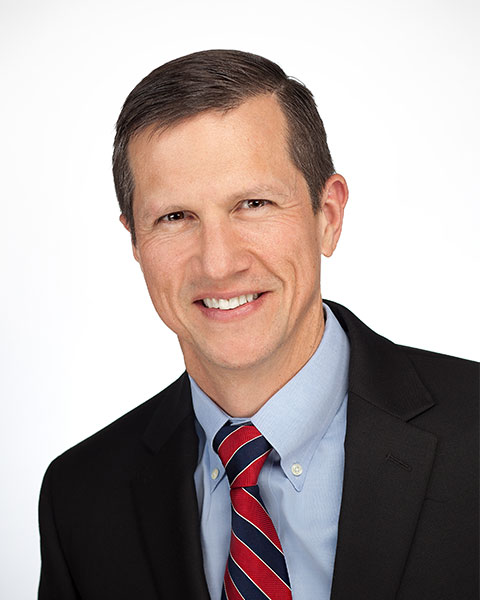Category: Sleep / Wake Disorders
Symposium 36 - Far-Reaching Impact for Well-Being: Development and Evaluation of Sleep Treatments
Level of Familiarity: Basic to Moderate
Recommended Readings: Edinger, J. D., Arnedt, J. T., Bertisch, S. M., Carney, C. E., Harrington, J. J., Lichstein, K. L., Sateia, M. J., Troxel, W. M., Zhou, E. S., Kazmi, U., Heald, J. L., & Martin, J. L. (2021). Behavioral and psychological treatments for chronic insomnia disorder in adults: An American Academy of Sleep Medicine clinical practice guideline. Journal Clinical Sleep Medicine, 17(2), 255-262., Harvey, A. G., Murray, G., Chandler, R. A., & Soehner, A. (2011). Sleep disturbance as transdiagnostic: Consideration of neurobiological mechanisms. Clinical Psychology Review, 31(2), 225-235., Scott, A. J., Webb, T. L., Martyn-St James, M., Rowse, G., & Weich, S. (2021). Improving sleep quality leads to better mental health: A meta-analysis of randomized controlled trials. Sleep Medicine Reviews, 60, 101556., Jordan, D. G., Slavish, D. C., Dietch, J., Messman, B., Ruggero, C., Kelly, K., & Taylor, D. J. (2023). Investigating sleep, stress, and mood dynamics via temporal network analysis. Sleep Medicine, 103, 1-11., Asarnow, L. D. & Mirchandaney, R. (2021). Sleep and mood disorders among youth. Child and Adolescent Psychiatric Clinics, 30(1), 251-268.
-
LS
Laurel D. Sarfan, PhD
Postdoctoral scholar
University of California, Berkeley
Berkeley, California -
CC
Colleen Carney, Ph.D. (they/them/theirs)
Toronto Metropolitan University
Toronto, Ontario, Canada -
LS
Laurel D. Sarfan, PhD
Postdoctoral scholar
University of California, Berkeley
Berkeley, California -

Daniel Taylor, Ph.D. (he/him/his)
Professor of Psychology, Director of Clinical Training
University of Arizona
Tucson, Arizona -
JD
Jessica Dietch, Ph.D. (she/her/hers)
Assistant Professor
Oregon State University
Corvallis, Oregon -
LA
Lauren Asarnow, Ph.D. (she/her/hers)
Assistant Professor
University of California San Francisco
San Francisco, California
Chair(s)
Discussant(s)
Presenter(s)
Sleep disturbance is a major public health problem. In the United States alone, 1 in 3 adults report insufficient sleep (Liu et al., 2016). Sleep disturbance affects people across the lifespan and is often chronic without treatment (Morin et al., 2015). Critically, sleep disturbance frequently precedes and predicts mental health problems, including depression, anxiety, substance use, psychosis, posttraumatic stress disorder, and suicidality (e.g., Hertenstein et al., 2018; Sandman et al., 2017; Slavish et al., 2022). Promisingly however, sleep can improve with evidence-based treatment (see Sarfan et al., 2022 for review). Moreover, treatments that focus on sleep can concurrently improve comorbid mental health problems (e.g., Harvey et al., 2021; Scott et al., 2021; Taylor & Pruiksma, 2014). Together, aligned with the 2023 ABCT convention theme, sleep treatments have the potential for far-reaching impact on well-being.
In light of this collective evidence, the present symposium highlights several distinct approaches to sleep treatment across different patient populations. The first speaker will present long-term follow-up outcomes of a randomized controlled trial comparing cognitive behavior therapy, behavior therapy, and cognitive therapy for adults diagnosed with insomnia. Improvements in both nighttime symptoms (e.g., sleep efficiency) and daytime symptoms (e.g., mental and physical health, work and social adjustment) will be reported. The second speaker will present outcomes of a trial comparing cognitive behavior therapy for insomnia and nightmares relative to cognitive processing therapy for adults with comorbid insomnia, nightmare disorder, and posttraumatic stress disorder. The third speaker will present the development process, content, and two planned pilot randomized controlled trials focused on a comprehensive sleep health intervention for an underserved group; namely, shift workers. The fourth speaker will present acceptability and preliminary outcomes of a digital sleep intervention for preschool-aged kids with autism spectrum disorder. The discussant—a leading scholar in sleep disturbance, sleep treatment, and co-occurring problems—will identify common themes, clinical applications, and important directions for future research.
Learning Objectives:
- Explain the impact of sleep disturbance on mental, physical, and public health.
- Describe a range of treatments for sleep disturbance.
- Compare sleep treatments on sleep-specific and mental health outcomes.
- Identify the benefits and limitations of sleep treatments for distinct patient populations.
- Discuss the process of developing and evaluating sleep treatments.
- Describe future directions for research on sleep treatment.

